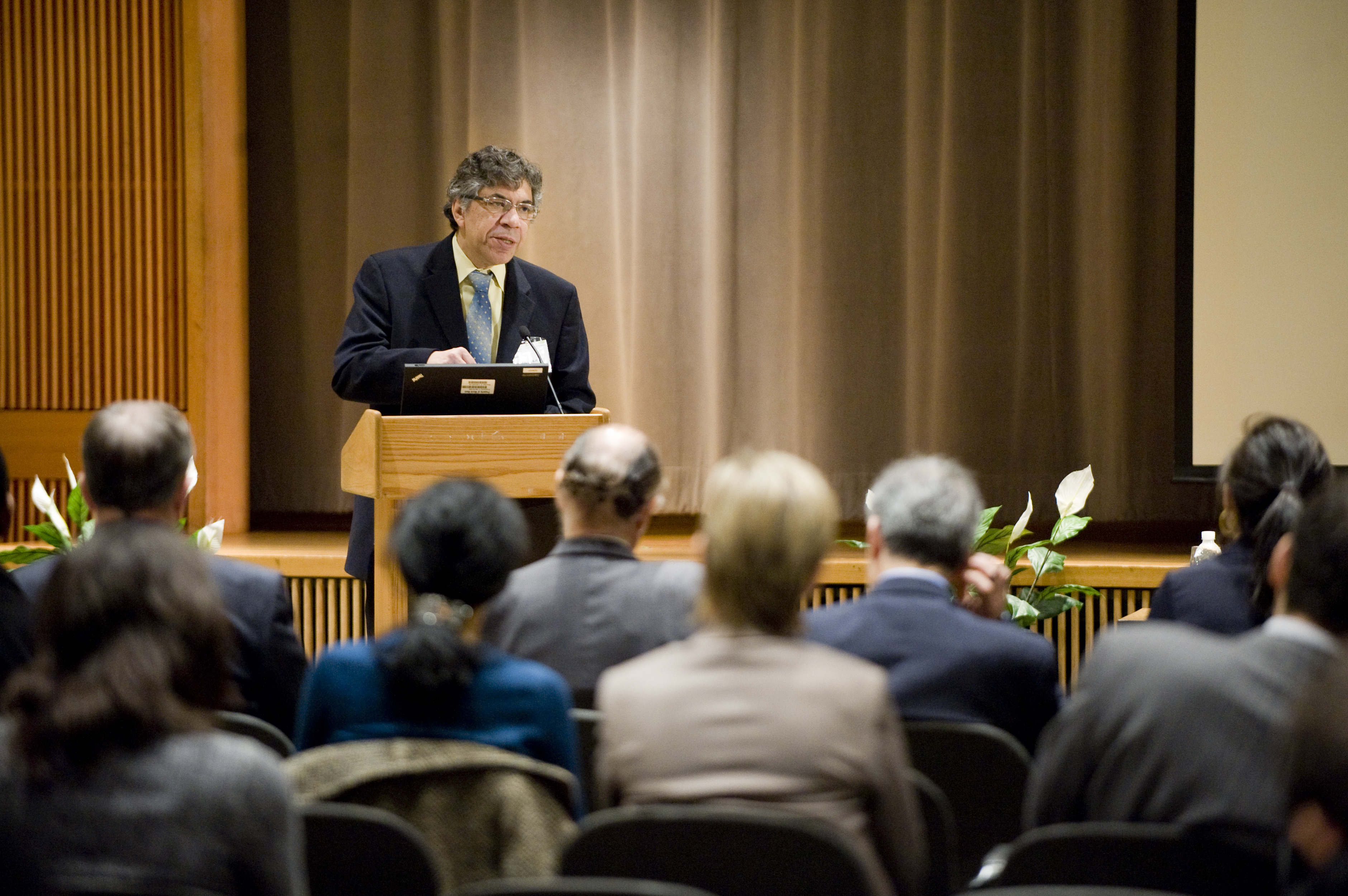O novo fantasma da bolha que espreita a economia
Queda dos juros americanos reaviva temores de uma próxima hecatombe financeira
Queda dos juros americanos reaviva temores de uma próxima hecatombe financeira
Brazil's economic recovery after the deep 2015-16 recession has been the slowest on record, with GDP per capita last year remaining more than 9% below its pre-crisis peak. The IMF's annual report on the country's economy, released two weeks ago, estimated current GDP to be nearly 4% below its potential level, which suggests insufficiency of aggregate demand. On the other hand, as the slow recovery reflects structural factors, it is necessary to avoid the use of measures to reinforce such demand that might run against the confrontation of such problems.
Na avaliação do economista Otaviano Canuto, ex-diretor do Banco Mundial e do conselho do FMI, a liberação do Fundo de Garantia por Tempo de Serviço (FGTS) aos trabalhadores não sustentará a retomada da economia brasileira. Ele observa problemas estruturais mais graves no País como o baixo investimento em infraestrutura e a anêmica produtividade, reflexo da precária qualidade da educação.

O acordo entre Mercosul e União Europeia é um exemplo de notícia boa que está sendo abalada nos últimos dias, de acordo com ex-diretor do Banco Mundial
A recuperação econômica brasileira após a profunda recessão de 2015-16 tem sido a mais lenta até hoje registrada, com o PIB por habitante no ano passado permanecendo mais de 9% abaixo de seu pico anterior à crise. O relatório anual do FMI sobre a economia do país, divulgado na semana passada, estimou o atual PIB como quase 4% abaixo de seu potencial, o que sugere insuficiência de demanda agregada. Por outro lado, como a lentidão da recuperação reflete fatores de ordem estrutural, cumpre evitar que o recurso a medidas de reforço de tal demanda jogue contra o enfrentamento de tais problemas.
This note approaches the relationship between natural wealth and economic growth, using the case of Sub-Sahara African economies as an illustration. Delving into recent World Bank reports, it highlights how a sustained positive correlation between natural capital and GDP growth happens through the transformation of the former into other forms of assets: produced capital, human capital and other intangible assets. Governance features and the quality of macroeconomic policies are of the essence for such a benign trajectory to take place.
The diffusion of knowledge and technology worldwide in recent decades has brought important changes to the global innovation landscape. But those changes could be much more profound if countries created more supportive investment environments.
The inclusion in the agreement of commitments regarding food security, environmental sustainability, adherence to the Paris Agreement, labor rights, rights of indigenous communities and others strengthen a Brazilian association to the European style of "globalism", assuaging fears widespread abroad that the country would turn to opposite directions after Brazil’s President Bolsonaro came to government.
A inclusão, no acordo, de compromissos com segurança alimentar, sustentabilidade ambiental, permanência no Acordo de Paris, direitos trabalhistas, direitos das comunidades indígenas e outros não deixam de reforçar uma associação brasileira ao estilo europeu de “globalismo”.
Quando o UM BRASIL foi criado, há cinco anos, a economia brasileira ainda demonstrava sinais de que tempos difíceis estavam por vir. Desde então, entender a crise econômica e o lento processo de recuperação, bem como abrir espaço para propostas para a retomada sustentável do crescimento, têm sido alguns dos assuntos mais debatidos no canal.
Instead of "rule of (multilateral) law", the US's bilateral handling of its super-strong market condition (24 percent of global GDP) more closely resembles a “law of the jungle” where the stronger imposes with force its will on the weaker.
Em lugar de regras e “prevalência da lei”, o manejo bilateral pelos EUA de sua condição de mercado super-forte (24% do PIB global) mais se assemelha a uma luta na selva onde os mais fortes sobrepujam como querem os mais fracos. Em tal contexto, a confiança em negociações é menor, assim como a disposição de buscar integração por parte dos menores.
Chinese FDI in LatAm has grown strongly, expanding from almost nothing in 2005 to an estimated US$110 billion or more in 2018, amid a shift away from simply pumping resources into infrastructure, governments and state firms, Brazilian economist Otaviano Canuto wrote in an article for the Americas Quarterly.
Multilateral Development Banks (MDBs) have two financing windows, with different terms, dedicated to low- and middle-income countries. Countries are presumed to cross those windows as their income per capita rises, with middle-income countries (MICs) eventually “graduating” to a non-client status once they reach some criteria. However, due to what may be called “middle-income traps”, such progression toward graduation has been limited to a small number of countries. In this paper, we suggest areas where the support by MDBs would yield highest results toward “graduation” of MICs. Item 1 reviews the criteria that have been used to justify graduation, whereas item 2 approaches two ways by which the possibility of “middle-income traps” impeding such graduation has been discussed in the literature. Finally, item 3 proposes an interface between MDBs’ support to MICs and the policy agenda to overcome middle-income traps.
VEJA 18 maio 2019 Previsões para o PIB em 2019 pioram, enquanto resta ao governo pouco a fazer para reverter o mau humor de um país à espera da…